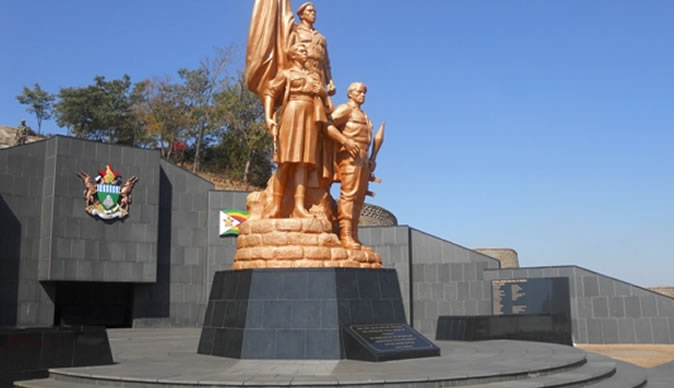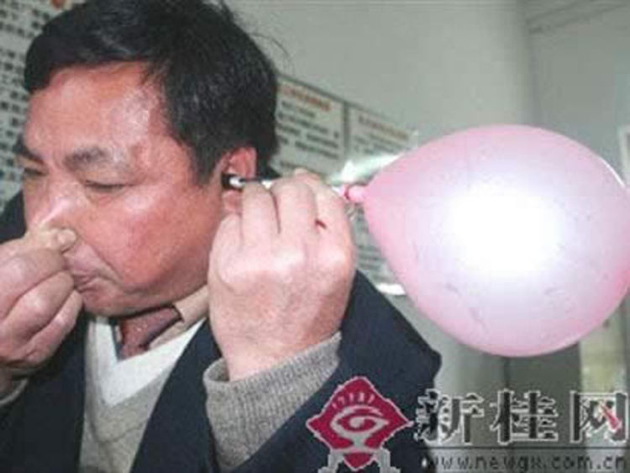Liberation, Heroism and Zimbabwe’s Constitution

 Zvakanyorwa Wilbert Sadomba
Zvakanyorwa Wilbert Sadomba
The liberation of Zimbabwe from colonial rule has been associated with heroism which has sparked controversies. There have been heated debates about the definition, identification processes, quality and significance of declaring such a status.
Our post-independence history, narratives and debates at all levels are littered with this issue. What really is a hero? Who qualifies as hero or heroine? When a person achieves such a status, of what significance is it to anyone including himself or herself?
These are nagging questions which demand more clarity than so far given. Heroism is at the centre of every society’s value system as it defines what that society upholds as its ideology, vision and aspirations.
Heroes are meant to be role models of society who shape its mentality and ideals. Unfortunately, this has remained a dark issue in Zimbabwe, creating confusion and conflicts.
In many cases it resulted in open intra and inner party confrontation. For example, the whole decade of the 1990s political landscape was dominated by this debate.
Many people remember hot parliamentary debates pitting Margaret Dongo, a veteran of the 1970s liberation war and Nathan Shamuyarira, a very senior Zanu-PF nationalist. Dongo threatened to slide on the Shamuyarira’s bold forehead, making her one of Zimbabwe’s most popular women politicians ever.
She could be the only woman in Zimbabwe who succeeded to form and lead a political party, Zimbabwe Union for Democracy. Dongo and Tekere were the two individuals who foiled the one party state strategy Zanu-PF was pursuing.
Liberation struggle is the continuous project from the time Zimbabwe suffered colonial penetration from external forces including the Portuguese and later the British.
Liberation wars, now popularly known as Chimurenga Wars, were fought to repel or free the country from colonial rule.
It is important to distinguish such wars from others Zimbabwe declares and fights. For example, if one day we have a ruler who decides that Zimbabwe should attack Mozambique and colonise it, how could such a war be classified? What heroes would come out of this war?
What if Zimbabwe declares war against enemies; if its neighbours or of the continent at large would such a war produce heroes?
“The liberation of Mozambique is incomplete until Zimbabwe is liberated,” Samora Machel used to say.
It brings in another point, that heroism is not confined in history but is a continuous status coined on the basis of fighting for the liberation of the nation and Africa in general.
However, is participation in defending the territory always an act of heroism? Our post-independence army is constituted of personnel whose reason for being soldiers might have nothing to do with their level of political consciousness.
They are individuals who joined the army for financial reward and no more and war veterans who became soldiers as liberation fighters of the guerrilla war. Are the two the same when it comes to heroism? This is difficult to say because the latter category also includes mercenaries.
Heroism demands a certain level of sacrifice whose criteria society must determine from time to time — heroism is a social qualification. Society itself determines the criteria from broad principles which I attempt to summarise here.
Acts and behaviour of the individual should be committed or omitted to benefit that society over and above the individual in question. Society must clearly be indebted.
Reference to this debt owned by society is the only basis to legitimise demand for heroism.
This consideration is also the basis for determination of sacrifice. Not any act is a sacrifice no matter its outcome to the common cause.
Sacrifice embodies a conscious decision by an individual to lose in order for society to benefit.
Loss on the part of the individual should not be accidental and unintentional.
The state of mind at the time of loss determines whether loss was a sacrifice or not.
The magnitude of loss is also a critical issue in determination of heroism. The loss should be sufficient of such quality that it suffices as a debt to society.
People lose a lot in a war but should that be a cause to demand heroism? What is the cut-off point for loss to constitute sacrifice? This brings in complex scenarios.
How would you compare a rich man’s loss of a business and a poor man’s loss of a milking cow in a war? Of the two, how do you compare with a poor girl’s loss of her school uniform when she left for Mozambique or Zambia to join the war?
The magnitude of loss is clearer when we consider the proportion of the material and spiritual loss. This would take into account a number of issues such as the disturbed development trajectory.
A milking cow could have ended up a whole herd and a business, an empire. What about a school uniform?
At most it could be a souvenir if the girl decided to keep it for aesthetic reasons. At worst it would be tattered and torn in the following year. Who sacrificed more than the other?
Leaving home and the country is not, however, always a necessary condition in measuring sacrifice — depending on the nature of society and the character of the liberation war.
For the Second Chimurenga it was a requirement but not for the First Chimurenga because the First was defending territory yet the second was to drive away settlers and it demanded leaving home.
Heroes of the first did not necessarily have to leave home or cross any border because there was none. Otherwise Charwe, the embodiment of Nehanda spirit, would not be celebrated as a hero.
By the same token some military youth in the Second Chimurenga left their homes to partake full-time in war activities, moving around with comrades without crossing the border.
Their sacrifice, I think, does not differ with the girl’s above or the comrades themselves.
In the absence of sacrifice heroism does not exist. Therefore if a soldier fights gallantly in a battle in order to be promoted and so earn a hefty salary and pecks, there is sacrifice but for financial gains.
This has nothing to do with heroism, which is actually a status coined by society in recognition of an act done in protecting the liberties of that society. A heroic act should first and foremost raise an individual above personal interests.
By extension, a soldier who dies on duty in Kosovo or Somalia under a UN peace keeping mission cannot be a hero for Zimbabwe but an old woman who decides to protect a base in the nearby hill and is shot could very well be a hero instead.
The foregoing are actually constitutional issues. In fact England, which is touted as an icon of democracy, does not have a written constitution but it (constitution) exists. How?
In its most natural state. The English constitution exists in the values, customs and legal decisions of English courts and the Magna Carter of 1215.
This should remind the public and especially students and professors of constitutional law that Zimbabwe did not start to have a constitution after colonisation but had always had one far before. Its contents are a serious subject for research.
It is a pity that the issue of heroism did not surface in the construction of our home-grown constitution. Being so fundamental to our political life, how could this have escaped?
I argue that this was possible because our constitution making was not an examination and codification of Zimbabwean values and customs but it was an externally driven process aime d at giving an appearance to the outside world that we are civilised.
Indeed at that time we were under attack from the West for the war veteran led revolution and we were going through the worst inflation any peaceful nation ever had.
Our economy was moving but backwards and the general but mistaken belief was that a constitution would extricate us from the problems.
The reference in the constitution to veterans of the liberation war is in the preamble and sections 23 and 84. Careful reading of these provisions amount to reducing heroes to welfare cases.
The later section negates the right to economic empowerment expressed in section 23, by elaboration. Economic empowerment is overtly excluded in section 84 and only welfare, pensions and basic rights are left.
Compared with other persons as women and the disabled, war veterans constitute the only group whose economic empowerment has been removed.
However, the act of declaring heroes has continued unabated after the new constitution but it seems like this is without any definitive express provisions in the constitution.
To that extent our constitution is deeply flawed and despite it being constructed on the home soil its content does not reflect Zimbabwean values and customs.
How then could our constitution address the issue of liberation and heroism?
First, the concept of liberation had to be well defined as a historical experience and as a permanent need in view of any future aggression against Zimbabwe.
Second, the definition and procedures for identifying heroes should have been given.
Third, significance of according an individual a hero status should be clarified. Of what spiritual and material benefit would such a status be?
Fourth, what are the rights and obligations of the state and society towards a hero?
The constitution could have defined a hero as any individual Zimbabwean, who, at any moment that the nation is under foreign subjugation, abandons her projects of life, social status, material property and comfort, exposing her life to peril as sacrifice to restore independence and liberties of Zimbabweans, shall be a hero without further qualification.
This definition would make the heroic acts timeless. It would cover heroes in our history as well as in the future.
It also removes ambiguities by expressing the expected level of loss to oneself and commensurate indebtedness of society.
Not every participation qualifies as heroic, otherwise the term would be meaningless.
Since one cannot acquire the status of heroism without exposition of body and life to peril, many of the heroes can be maimed or they die.
Those who get maimed need mental rehabilitation and health services.
Although it would be impossible to restore the social and physical position of the hero to its original state, it is important for society to make an effort to mitigate the effects of the war on a hero and this is what the welfare programmers aim at.
A community and family whose member leaves to join the war, shall have the right to a proportion of welfare, reconstruction and development fund mobilised by the state from external and or internal sources.
- Dr Sadomba is at the UZ Centre for Applied Social Sciences










Comments